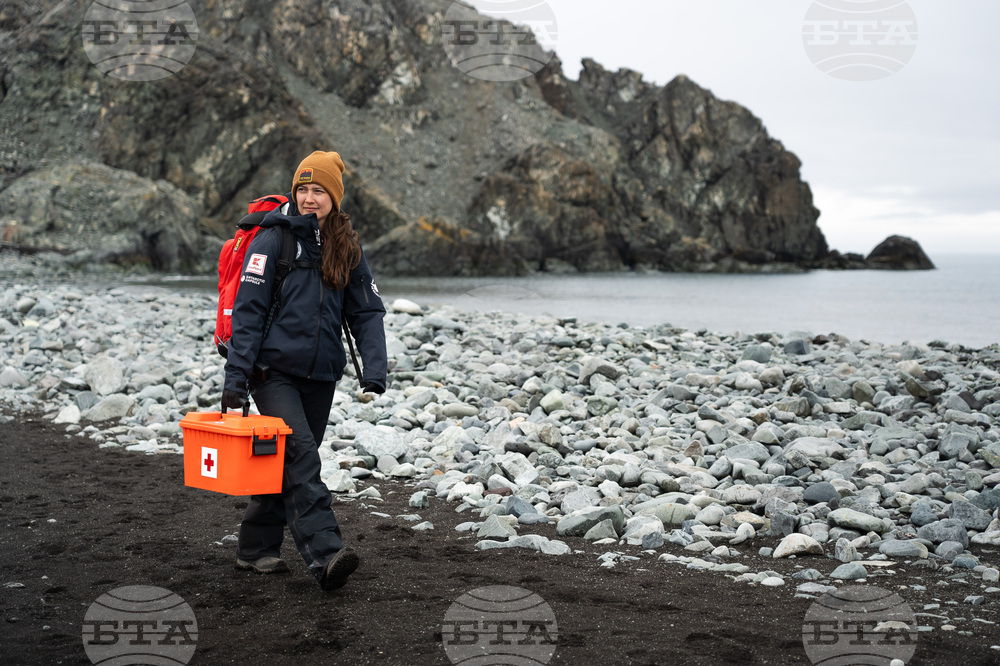site.btaDr. Sevdalina Mihaylova: What It's Like to Be Doctor in Antarctica


Dr. Sevdalina Mihaylova is one of the doctors at the Bulgarian Antarctic Base St. Kliment Ohridski on Livingston Island. She is an anesthesiologist-resuscitator at the Clinic of Pediatric Anesthesiology and Resuscitation at Pirogov Hospital and at Zdraveto Hospital.
She has been working at Pirogov since 2017, and has also completed one year of specialization in Paris, France, where she worked as an anesthesiologist. Dr. Mihaylova’s additional activities are connected with the Mountain Rescue Service (MRS), where she has participated as a doctor – mountain rescuer since 2018. Her responsibilities at MRS include providing first aid training to future rescuers. Since 2018, she has been an instructor in first aid for the Bulgarian Extreme and Freestyle Ski Association (BEFSA).
Mihaylova told the Bulgarian News Agency (BTA) that this is her second Antarctic expedition. On Livingston Island, this position involves ensuring the prevention and safety of the expedition members, and if necessary, intervening regarding their health condition. She explained that the activities carried out at this location are quite diverse, and the doctor's role in such an environment has several aspects. On one hand, there is prevention, monitoring, and responding to potential injuries or acute illnesses. On the other hand, she is responsible for monitoring chronic diseases that need to be kept under control. The third aspect is psycho-social, and according to Mihaylova, the doctor should act as a pillar around which everyone should feel comfortable, be able to seek support, and rely on in any situation, and she consciously works in this direction.
The doctor shared that in a place like the Antarctic base, her additional activities with MRS and BEFSA, as well as field and terrain work, are definitely of great benefit. According to her, the most important thing to consider for future doctors who will be part of Bulgarian expeditions is that the medicine practiced in such a place is quite different from what is practiced in hospitals. It is important to pay increased attention to prevention because even a simple cut requires taking all the necessary measures to prevent complications. There must be an extraordinary level of caution regarding people's condition. From her fieldwork experience, Dr. Mihaylova is convinced that the field of mountain medicine is quite specific and has many peculiarities.
Mountain medicine is her passion and hobby, something that excites her and she strives to always stay informed on the subject and keep up with the latest developments. According to her, what needs to be considered and known are the protocols of the International Commission for Alpine Rescue
"I have noticed that when it comes to field medicine, things can be quite different from what is written in the standard textbooks that students learn from. Of course, medicine is still medicine, at its core it is the same, but these assessments and the combination of things are a bit different," explained Mihaylova. According to her, a doctor's preparation begins well before the expedition.
"I dare say that from a medical perspective, the base is very well equipped. Of course, there is still room for improvement, but considering where we are, what has been achieved over the years by my previous colleagues is truly excellent," she underlined.
She pointed out that this year, building on the experience from her previous expedition, she has taken on the role of improving the qualifications of the rest of the logistics team regarding first aid and rescue operations on the ground. This is happening with the support of the Bulgarian Antarctic Institute and the National Center for Polar Research.
"For me, the ship is a great support, as it also has a medical professional on board," said the medic of the expedition. She shared that in her contact list, she has specialists to whom she can always turn if she needs to consult someone. "We doctors study general medicine for six years, but after that, there is a narrow specialization, and I believe it is best to seek the opinion of experts in a specific field to find the best result, the best solution for the patient or the injured person," Mihaylova said, explaining that the doctor at the base does not work alone, but works with the logistics team at the base and with a team of doctors in Bulgaria whom she can rely on.
/RY/
news.modal.header
news.modal.text